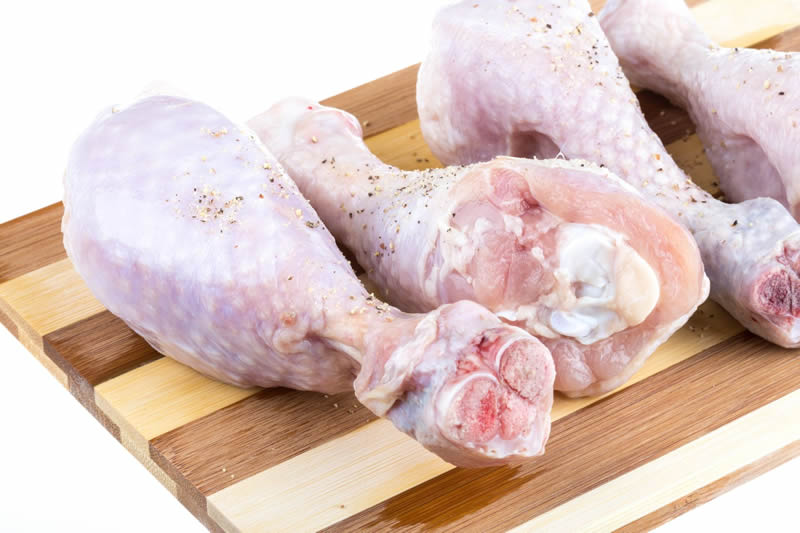
Approximately 280 people are dying every year in the UK from blood infections caused by a highly antibiotic-resistant E. coli superbug, acquired from chicken.
According to a new study, poultry-associated ESBL E. coli infections in the UK result in an additional 12,500 days in hospital for treatment with antibiotics of last resort and throughout the EU as a whole, 8,502 cases of blood-poisoning and 1,519 deaths every year specifically linked to chicken production.
ESBL (extended spectrum beta lactamase) E. coli have become an increasing problem on farms and in human medicine over the last decade. The resistance is caused by modern antibiotics known as third and fourth generation cephalosporins. These are used in both farming and in hospitals making it difficult to work out how much of the problem arises from each sector.
In the first study of its kind, an international team of scientists used a Dutch genetic fingerprinting study to estimate the proportion of ESBL E.coli blood-poisoning infections and deaths in humans resulting from the use of a third-generation cephalosporin in chicken production.
According to their analysis, chicken production is responsible for 1,580 cases of ESBL E. coli blood poisoning every year in the UK. These are serious infections requiring hospitalisation but can no longer be treated with the hospital antibiotics of choice, modern cephalosporins, because of prior use of similar antibiotics on farms.
The scientists say: ‘The number of avoidable deaths and the costs of health care potentially caused by third-generation cephalosporin use in food animals is staggering’. The study recommends that urgent worldwide action is taken to limit the use of these antibiotics in all food animals. The Soil Association has been calling for this since 2006.
Soil Association Policy Adviser, Richard Young, said; “This is the first detailed estimate to emerge of the human-health consequences from the use of antibiotics in European agriculture. It indicates that large numbers of people die of resistant infections due to the over-reliance on antibiotics in intensive livestock farming. It also shows that there are major additional costs to the NHS from treating patients even when they survive the infections.
This study relates to just one type of antibiotic and one bug in one type of animal – broiler chickens. However, the same type of antibiotics are also used in pig production and dairy farming, and the farm use of several other antibiotics also needs to be addressed because it gives rise to similar concerns.”
Since 2012, British poultry producers have voluntarily stopped using all cephalosporins in poultry. The antibiotics were never licensed for use in poultry but were previously used ‘off-label’ for disease prevention in chicks. This practice was also widespread throughout Europe, despite technically being in breach of EU regulations, and in the Netherlands it led to ESBL E. coli being found on about 80% of retail chicken meat.
The Soil Association is concerned that at least two other types of antibiotics used in chicken production have the known ability to maintain ESBL E.coli on chicken farms, and that without action on these, the problem will persist, even though the use of cephalosporins has now been suspended.
